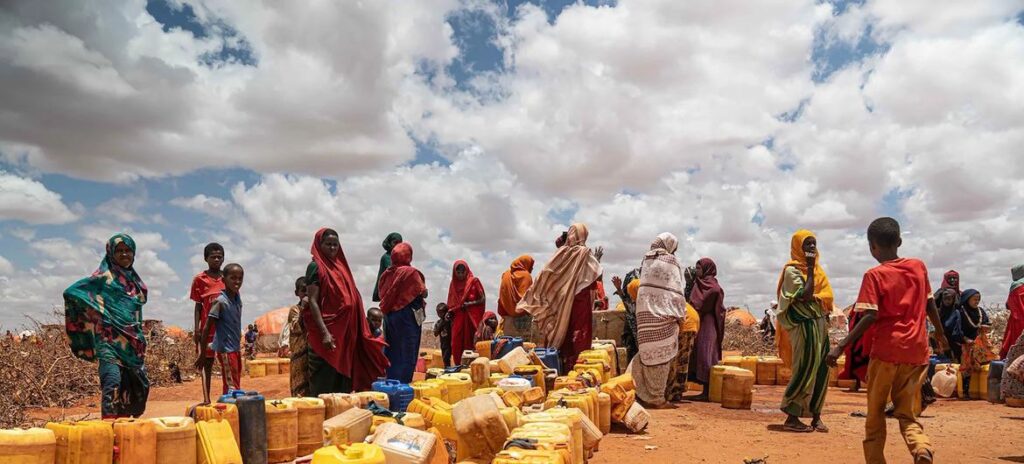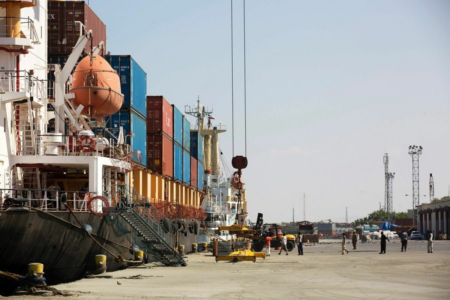Somalia continues to face one of the world’s most severe food security crises.
Years of drought, floods, conflict and rising food prices have left millions of Somalis, including more than three million internally displaced people (IDPs), dependent on humanitarian assistance.
To prevent famine and strengthen resilience, a wide range of international organizations are running projects designed to boost food security for displaced and vulnerable populations across the country.
Let’s explore major initiatives related to Somalia’s food security:
International Initiatives that Support Food Security in Somalia
Joint UN Programmes Strengthening Food Systems
The Food and Agriculture Organization (FAO) and the World Food Programme (WFP) have launched joint programmes to improve Somalia’s food systems.
These initiatives combine emergency food support with longer-term investments in climate-smart agriculture, nutrition and social protection.
One flagship project, implemented with the Federal Government of Somalia and funded by the Joint SDG Fund, integrates nutrition-sensitive social protection measures to help households – especially IDPs – recover from repeated droughts and build sustainable livelihoods.
WFP Emergency Food Assistance and Anticipatory Cash
WFP remains the largest provider of food assistance in Somalia.
Its country operations deliver monthly food rations, fortified nutrition products and cash transfers to millions of vulnerable people. In recent droughts, WFP introduced anticipatory cash payments to families at risk of displacement, allowing them to buy food before a crisis peaks.
IDPs in camps and urban centres are among the primary beneficiaries of these efforts.
FAO Livelihoods and e-Voucher Programmes
FAO complements emergency food aid with resilience-building programmes such as e-voucher systems for farmers, livestock vaccination campaigns and the rehabilitation of irrigation canals.
These activities enable displaced families and host communities to restore livelihoods, reduce dependence on relief and improve household food access.
Farmer registration platforms and climate-smart agricultural practices are being scaled up nationwide.
World Bank Safety Nets for Vulnerable Households
The World Bank supports Somalia’s transition from ad-hoc relief to government-led social protection through projects like Baxnaano.
This safety net programme provides predictable cash transfers to poor and vulnerable households, including those displaced by drought or conflict.
By stabilising incomes, it helps families secure food and reduces the risk of negative coping strategies.
NGO and Donor Consortia Responding to Protracted Crisis
International NGOs such as CARE, Islamic Relief and consortium partners under Somalia Protracted Crisis Joint Response (SOMJR) run a mix of food distributions, cash-voucher programmes and nutrition services targeting IDPs in high-risk areas.
These projects complement the UN’s humanitarian pipeline and are often funded by donors including the European Union and bilateral partners.
EU and IOM Humanitarian Operations
The European Commission’s humanitarian arm (DG ECHO) funds large-scale food, water and protection programmes delivered by UN agencies and NGOs for displaced Somalis.
The International Organization for Migration (IOM) integrates food security support into its crisis response plan, providing cash, non-food items and livelihoods support to IDPs alongside displacement tracking.
International Grain Shipments and Ad Hoc Charity Aid
Somalia has also benefited from international grain shipment initiatives such as “Grain from Ukraine,” which send humanitarian wheat cargoes to countries facing severe hunger.
In addition, global charities and diaspora groups periodically airlift or ship food parcels to IDP camps, filling critical gaps during emergencies.
Read also: Somali Diaspora Humanitarian Action: Supporting Communities in Crisis
Building Resilience While Meeting Urgent Needs
All these efforts share a dual objective: meeting urgent food needs while building resilience against future shocks.
Programmes combine cash transfers, emergency rations and nutrition support with training, agricultural rehabilitation and safety nets.
This integrated approach helps displaced families not only survive crises but also start rebuilding their livelihoods.
What Is Needed to Fight Somalia Food Insecurity Crisis?
Somalia food insecurity crisis demands sustained international engagement.
By coordinating efforts through UN agencies, NGOs, donors and government systems, the global community is delivering life-saving food assistance and investing in long-term solutions for internally displaced people.
The initiatives described above highlight the scale and diversity of international support aimed at strengthening food security in Somalia.
For millions of displaced Somalis, these programmes provide a vital lifeline and a pathway towards greater stability and self-reliance.








